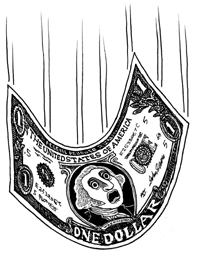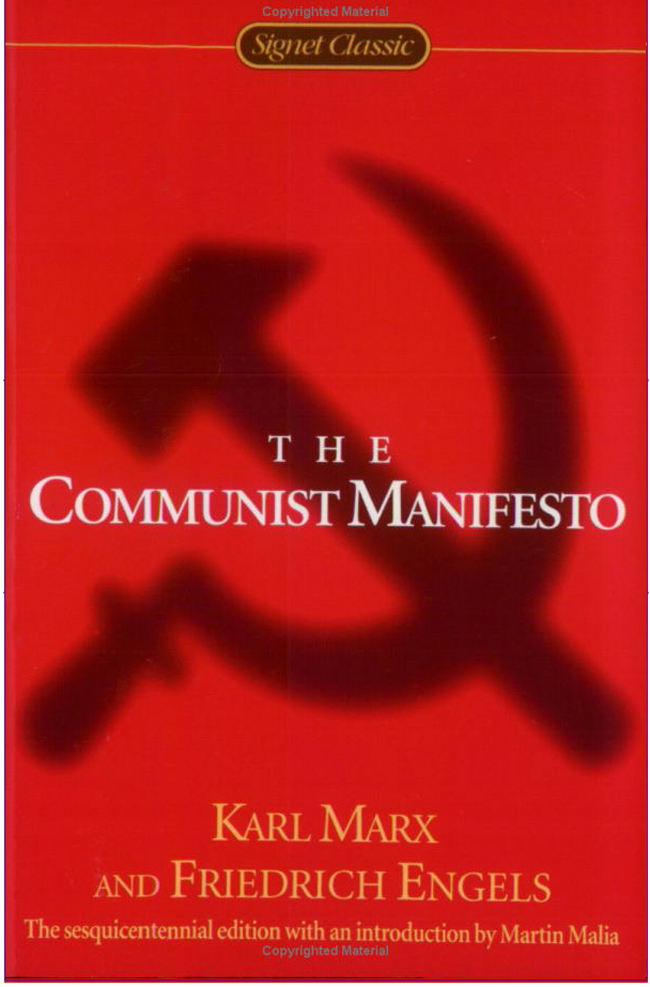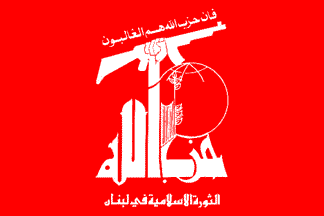Uncle Sam's "Fake Money" Economy Continues its Downward Spiral
 Day after day, the Financial Times continues to report on the weakness and instability of Uncle Sam's fake-money driven economy.
Day after day, the Financial Times continues to report on the weakness and instability of Uncle Sam's fake-money driven economy.On both Thursday and Friday, the paper ran stories reporting on the continuing fall of the dollar. Thursday's report, authored by Steve Johnson, began:
The US dollar lost ground for a second session as portfolio inflows into the US disappointed and rising interest rate expectations appeared to lose their ability to support the greenback.In other words, because of the geopolitical crises Uncle Sam has brought upon itself, foreign governments are no longer willing to artifically support the Greenback. The piece continues:
The US Treasury reported that net inflows into US assets of more than one-year duration totalled just $46.7bn in April, the lowest figure for a year. This was not only below March inflows of $70.4bn and consensus forecasts for a reading of $60bn plus, it was also insufficient to cover April’s trade deficit of $63.4bn.
Hans Redeker, head of currency strategy at BNP Paribas... did speculate that a $12.4bn decline in the Treasury holdings of UK-based investors could indicate declining interest from Middle Eastern oil exporters, many of whom route capital flows through London. “There could have been some liquidation from the Middle East, it is more than likely,” said Mr Redeker.On Friday, Peter Garnham's piece picked up where Johnson's left off. Pointing to "Thursday’s capital flows (TICS) data, which showed a surprise drop in securities investment into the US in April, raising concerns over the funding of the US current account deficit," he wrote:
If so, he believed the money had been switched to shorter term US debt instruments not covered by the data, hinting at possible future dollar weakness if this money is actually shifted out of the US.
The data, combined with a strong Empire manufacturing survey but weak industrial production numbers, saw the dollar dip 0.2 per cent to $1.2615 to the euro and 0.3 per cent to $1.8481 against sterling.
The dollar lost ground on Friday amid easing global risk aversion as stock and commodity markets continued to rally from the sharp sell-off seen earlier in the week.The Greenback remains a powerful economic force in the world today for one cardinal reason: the Petro-Dollar. But increasingly, as the resiliance of Uncle Sam's economy wavers due to its enormous debt and as capital gravitates away from the Plantation to places that pay slave-wages, forcing production downward and fueling the trade deficit, the world's bourgeoisie have started looking in earnest for ways to sustain a global capitalist system with a falling rate of profit. To do so, they must plan for the eventual collapse of the Greenback.
The dollar slipped 0.2 per cent against the euro to $1.2656, fell 0.1 per cent against against the yen to Y114.65 and eased 0.2 per cent against the Swiss franc to SFr1.2278.
The Iranian Oil Bourse and the Petro-Ruble have entered the public imagination as alternative currencies that can replace the Petro-Dollar in light of such a collapse. And on Friday, another Financial Times piece introduced a third possible currency with the potential to replace the Petro-Dollar: a Pan-Asian one.
The US on Thursday signalled it would not fight efforts to create an Asian currency unit, turning the page on over a decade of largely consistent opposition to Asian monetary integration...The importance of this announcement on the geopolitical balance of power depends almost entirely on whether or not its users can purchase oil. This is potentially a maneuver by Uncle Sam (along with its vassal state, Japan) to blunt the creation of an Iranian Bourse or a Petro-Ruble in an effort to preserve the Petro-Dollar hegemony that comes from only trading oil in Greenbacks.
The green light from the US is a big boost for Japan, which has been pushing the idea of an Asian currency unit loosely modelled on the European currency unit, the precursor to the euro, in face of considerable regional scepticism. It comes at a time of growing diplomatic closeness between Washington and Tokyo.
While formidable obstacles remain to the creation of an Asian currency unit, with Asian countries unable to agree on weightings or on the inclusion of Taiwan, the US decision and the broader evolution of US Asia policy it represents may in time be seen as highly significant.







<< Home